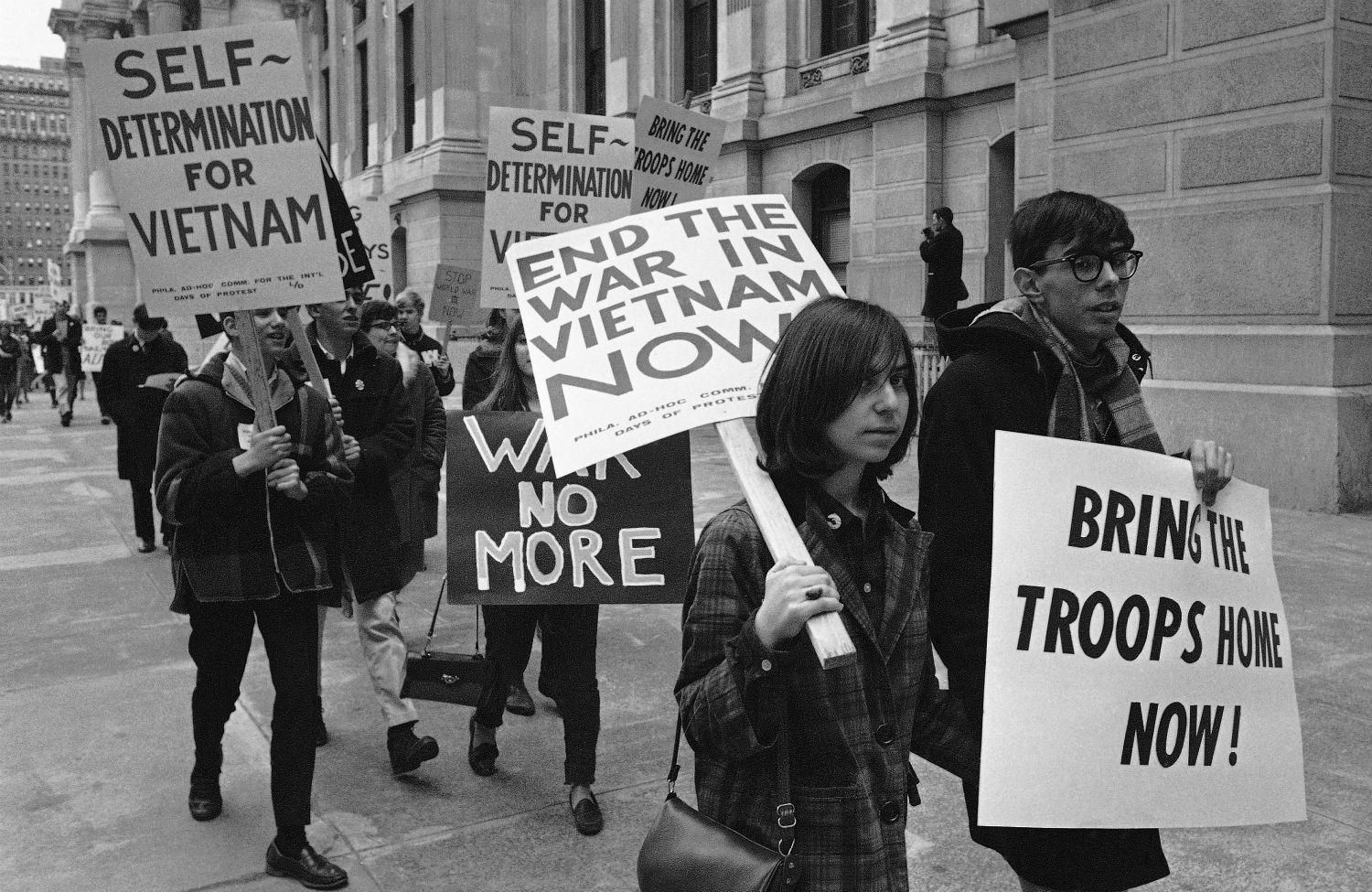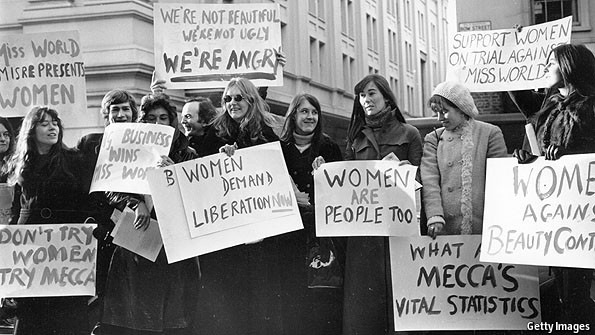The Pew Research Center of U.S. Politics and Policy suggests that only 19% of Americans say they can fully trust their government in 2017. But back in 1958 when the American National Election Study asked the question of, "Do you trust the federal government?", 73% of the people replied "yes". So when did this erosion of trust in the American government begin? Some major reasons for this distrust can be rooted back to the 1960s.
 |
| Vietnam War protests |
The Vietnam War, which lasted for 20 years, shot a huge bullet through the U.S. federal government and proved to be a disaster for its plummeting reputation. Started during Eisenhower's presidency, no one predicted that this war would blow up to dominate the foreign policy sector of the government. As casualty numbers began piling up to exceed one million, many Americans affected by their families and friends serving in the military, expressed their concerns. Although they demanded answers from the White House, in reality, the government did not have an adequate response because they never had a clear plan and as General Westmoreland put it, the war was a time for "trial and error". As this state of confusion in the White House became more publicly known, Americans lost faith in their traditionally headstrong and confident government. There seemed to be no direction whatsoever, that the Vietnam War was headed towards. They began to consider the deceased soldiers' lives wasted and called for the men to come home.
 |
| Women's rights |
Social movements and public unrest were the highlight of action in the 1960s. These included the most well-known civil rights movement, feminist movement, antiwar movement (in response to Vietnam War), gay rights movement, student protests, environmental movement, and the revival of conservatism. All of these movements were indicators of public dissatisfaction in the way things were working in America at that time. Wanting to drastically change the traditional American way of life in many aspects, a lot of citizens actively participated in these revolutionary movements, which often resulted in physically or verbally attacking the federal government. Broadcast on TV, most families in America could see injustice such as police brutality happening on the streets of their country. This ingrained in many people's minds, the distasteful side of their own government that they could not previously see nationwide.
 |
| Watergate Scandal |
The Watergate scandal greatly contributed to the public distrust already present in American society. Although President Nixon's reputation turned more positive when he officially signed the SALT treaty to limit nuclear weapon production, this scandal scarred the image of the federal government more than ever. On June 17th 1972, five men in relation to President Nixon's reelection campaign organization were arrested in the Watergate office of the Democratic National Committee. They were caught attempting to bug phone lines and put tapes over multiple locks in the headquarters building. As it became clear over immediate investigation that President Nixon was the mastermind behind this incident, the House of Representatives voted to impeach him for abuse of power, obstruction of justice, and Constitutional violations. But before they could impeach him, he resigned. This entire scandal outraged the public as they were left without an elected president and no sense of where the broken nation was headed. This also specifically contributed to the declining popularity of the two dominant political parties, the Democrats and the Republicans.
These three main issues that took over the 1960s led to a general distrust in the American government. It frightened the people to see a once trusted government start to collapse under unfulfilled promises of freedom and democracy. This unrest would continue throughout the 1970s and 1980s with President Ford, Carter, and Reagan. It is clear that even today with our new president, people are rapidly losing faith in the federal government.



This is a great post on the increase of distrust between the people and their government in America. These three issues are major "crimes" or problems which many Americans saw as the government lying, cheating, and scamming the American people. In addition, the movements showed how many people were upset with the government. In the future, do you think the distrust will increase.
ReplyDeleteNice post! I think that it is so interesting that the Vietnam war started the decline of faith in the government when so many people supported it initially. I also think that it is so interesting that people supported the government and trusted it in the 1950s, but as soon as television became popular and provided a window into the protests of people demanding rights, people who initially thought life was good in America were able to see the injustice and started to distrust their government. I wonder if the government had been more honest with their foreign policy and motivations behind their actions for the Vietnam war if there would have been a less rapid decline in the people's trust of the government. For more information on the secrecy of the government at this time: https://fas.org/sgp/eprint/gibbs.html
ReplyDeleteIt's really nice how you connected these events to the overall attitude of the people toward the government during this era. It really makes clear how people's view changed due to a range of reasons. Another part of the this was the Pentagon Papers, which revealed to the American public their government's involvement with the Vietnam War. The fact that the government kept many information from the people strengthened this distrust.
ReplyDeleteI really liked this post; it provided a great explanation for the incline of distrust in the american government. It's great how you were able to connect three main events and reasons for the american people to lose trust in the government due to the scandals and misleading information that they spread across the country.
ReplyDelete